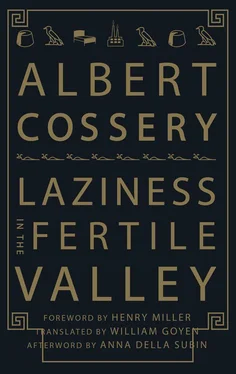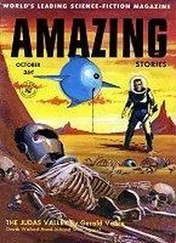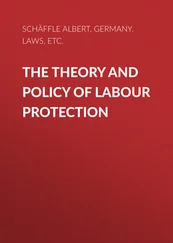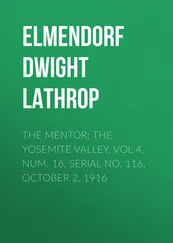Albert Cossery - Laziness in the Fertile Valley
Здесь есть возможность читать онлайн «Albert Cossery - Laziness in the Fertile Valley» весь текст электронной книги совершенно бесплатно (целиком полную версию без сокращений). В некоторых случаях можно слушать аудио, скачать через торрент в формате fb2 и присутствует краткое содержание. Год выпуска: 2013, Издательство: New Directions Publishing Corporation, Жанр: Современная проза, на английском языке. Описание произведения, (предисловие) а так же отзывы посетителей доступны на портале библиотеки ЛибКат.
- Название:Laziness in the Fertile Valley
- Автор:
- Издательство:New Directions Publishing Corporation
- Жанр:
- Год:2013
- ISBN:нет данных
- Рейтинг книги:3 / 5. Голосов: 1
-
Избранное:Добавить в избранное
- Отзывы:
-
Ваша оценка:
- 60
- 1
- 2
- 3
- 4
- 5
Laziness in the Fertile Valley: краткое содержание, описание и аннотация
Предлагаем к чтению аннотацию, описание, краткое содержание или предисловие (зависит от того, что написал сам автор книги «Laziness in the Fertile Valley»). Если вы не нашли необходимую информацию о книге — напишите в комментариях, мы постараемся отыскать её.
Laziness in the Fertile Valley — читать онлайн бесплатно полную книгу (весь текст) целиком
Ниже представлен текст книги, разбитый по страницам. Система сохранения места последней прочитанной страницы, позволяет с удобством читать онлайн бесплатно книгу «Laziness in the Fertile Valley», без необходимости каждый раз заново искать на чём Вы остановились. Поставьте закладку, и сможете в любой момент перейти на страницу, на которой закончили чтение.
Интервал:
Закладка:
The child devoured his bread with feverish haste. He still wasn’t sure about this providential meal.
“Well, do you like to hunt birds?” Serag asked.
The child stopped eating. He seemed to be gravely offended.
“I don’t do it for fun,” he said. “I hunt them so I can sell them. Do you think I’ve got time to waste?”
He assumed an air of importance, looking almost with pity at Serag.
“Excuse me. I didn’t know you were working. It’s nice work you have there.”
“It’s damned hard work,” replied the child. “Since this morning I haven’t killed a single one. They’re worse than devils.”
To sell birds! Certainly it was a business as worthy as any other. Serag realized this perfectly. But even so, it seemed a little fantastic to him, a little too frivolous. Was the child making fun of him? He must scorn him. Yet he remembered the child’s cruel efforts and couldn’t help marveling at him. Perhaps this was the sort of work for him. He would have liked to ask for explanations, to know the details of this mad industry, rich in risks and adventures. Perhaps, one day, he himself could take up this work, if he judged it sufficiently lucrative.
“And this brings you a lot of money?” he asked.
The child didn’t reply. He had finished eating his bread, but seemed scarcely appeased. Suddenly he began to jump on one leg, spinning around like a maniac. This exercise plunged him into a state of rare intoxication. His face had taken on an expression of careless joy. He scarcely paid any more attention to Serag and seemed to have forgotten him completely.
Stretched out on the grass, Serag watched the child turn; then he blinked his eyes to keep himself from dizziness. He was shocked by the child’s contradictory behavior and understood nothing of his changes of mood. His imagination reveled in a savage reality which only included the child intermittently. He swung between an absurd dream and a terrifying reality. Serag couldn’t manage to place him in any part of his pathetic image of a world tortured by agony.
A fine rain began to fall, making the country still more melancholy. Serag was aroused from his torpor by the drops of rain striking his face. He sat up, shook himself, and remained sitting on the grass, his arms clasped around his knees. After a minute the rain stopped and a vague light shone down. The sun emerged from the clouds, then again was caught by the heavy mass of phantom ships.
The child still spun around; he was panting — at the height of ecstasy. Serag noticed that the leg he held in the air was wrapped in an old piece of cloth, just above the heel.
“Did you hurt your foot?”
“I was run over by a streetcar,” replied the child, and he stopped turning.
“It’s better now?”
“Yes, it’s better. But it’s not important. Tell me: haven’t you any more bread?”
“No,” said Serag, “I only had the piece we ate. I’m very sorry. Are you still hungry?”
“I’m always hungry,” said the child. “And you, what are you going to do afterwards?”
“After what? What do you mean?”
“I mean when you’re hungry again,” explained the child.
“Why I’ll go back to the house for lunch,” said Serag.
“Ah! you’re one of the ones who have houses!”
“Yes,” said Serag innocently. “I have a house not far from here, near the highway.”
But at once he was ashamed and saw that the child was judging him with deep suspicion.
“You see,” he continued, “it’s not really my house, it’s my father’s. I only live there. And you, haven’t you a house?”
“I had one,” said the child. “But someone stole it.”
“Someone stole it? How? Who stole it from you?”
“A boy I rented half of it to. We shared it together. But one night when I came back to sleep, I couldn’t find the boy or the box.”
“The box?” said Serag, astonished. “What box?”
“The house — it was a wooden box,” said the child. “You didn’t think I owned a real house did you?”
“I just didn’t understand,” Serag apologized.
“Anyhow, it was a beautiful box,” said the child regretfully. “I found it near a junkyard. It kept out the cold very well, especially where I set it up. It was better than an apartment, believe me. We had some good times, that boy and me. It was warm there and we smoked butts. Sometimes some of our friends would come by and keep us company.”
“You all lived inside? It must have been a big box.”
“No, the others stayed outside. Only the boy and me lived in the box. It was ours.”
“And you never invited them to stay with you?”
“Sometimes one of them would take my place for a minute. But he wouldn’t stay long. We threw him out if he didn’t want to go.”
“Then this boy stole it from you?”
“Yes, he was a thief and a son of a bitch. I spend my time looking for him. Have you seen him around here?”
“No, I haven’t seen him. Besides, how would I recognize him?”
“Oh! he’s easy to recognize,” said the child. “His mother’s the biggest whore in the world.”
This story left Serag dreaming for a moment. He imagined the child’s adventurous existence with secret joy. To be like him! It wasn’t only the adventure that seduced him, but the vague conviction that beyond this unfettered and nomadic existence was a living and tangible reality he wanted to share. For a long time he had fought to free himself from the apathy that was like an open wound, draining the very blood of his youth. He would have liked to feel overwhelming emotions, to face horrible dangers, to fight with the endurance of a living being. But at the same time he was vaguely frightened by this unknown universe, cursed and suffering. Dark forebodings warned him not to attempt such a trying ordeal. The feeling of his impotence crushed him, always threw him back toward the world of idleness where he vegetated in his family’s house, surrounded by a security more annihilating than death. Never had he dreamed of this liberty of action, this pitiless intensity for life which the child exuded. He had the impression that between himself and the world of this child there was an infinite desert of black slumber.
The birds had come back to the branches of the sycamore. They seemed happy with their lot and filled the air with sharp calls. From time to time the child glared toward them; he didn’t forgive them for their deception and thought of soon resuming his interrupted work. It was a ruined day for him — again one of those endless days when he searched in vain for his subsistence. But he seemed not to worry, shivering under his rags with a sort of naive aliveness, as if all his woes had no effect on his hardened nature. He crossed his arms on his chest and began to jump joyously.
Serag stretched weakly, tried to get up, and fell back at once on the grass. He made a second effort and succeeded this time in standing up. He blinked his eyes and spoke to the child:
“Let’s walk a bit, little one! I ought to go as far as the factory. Would you like to come with me?”
“Is there a factory near here?”
“Yes, it’s still under construction. I don’t know what’s wrong, but for months they’ve stopped work there.”
“Maybe the owner is dead,” said the child.
“I don’t think so,” said Serag. Then he added in a lugubrious tone: “That would be a great tragedy!”
“Why, is he a relative of yours?”
“No, it’s not that. But I’m interested in the factory. If you’ll go with me I’ll explain it to you.”
He felt painfully the need of company. At bottom, he knew he’d never get as far as the factory alone — that he’d surely fall asleep on the way. This had already happened to him several times.
Читать дальшеИнтервал:
Закладка:
Похожие книги на «Laziness in the Fertile Valley»
Представляем Вашему вниманию похожие книги на «Laziness in the Fertile Valley» списком для выбора. Мы отобрали схожую по названию и смыслу литературу в надежде предоставить читателям больше вариантов отыскать новые, интересные, ещё непрочитанные произведения.
Обсуждение, отзывы о книге «Laziness in the Fertile Valley» и просто собственные мнения читателей. Оставьте ваши комментарии, напишите, что Вы думаете о произведении, его смысле или главных героях. Укажите что конкретно понравилось, а что нет, и почему Вы так считаете.












